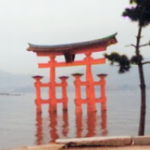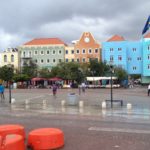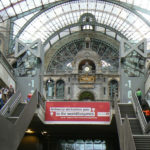For the fourth time in its 22-year history the Gay Games were held in the USA.
Starting in San Francisco in 1984 and 1986, New York in 1994 and Chicago 2006,
The Games carry on the spirit of founder Tom Waddell’s vision of
‘Participation, Inclusion and Personal Best’.
GlobalGayz owner, Richard Ammon, was there competing in swimming (since 1986) at the University of Chicago pool along with a thousand other swimmers. It was truly a week of validation, intense schedules and physical exertion–
with impressive sight-seeing squeezed in.
Also see:
Gay USA Stories
Gay USA News & Reports 2002 to present
Gay Games Photo Galleries
By Richard Ammon
Chicago
July 2006
The 7th version of Tom Waddell’s dream unfolded this week in Chicago when thousands of spectators and athletes gathered at two dozen venues to run, swim, jump, bike, dribble, wrestle, dance or bowl in competition to win gold, silver and bronze medals. Most of course were there to do a personal best in their sport and have a validating celebration of their lives in an affirming city.
These Games were the sixth for this writer so comparisons with other Games are inevitable; but a single observer can hardly make a fair assessment of an event so large–there were over twenty-five separate sports competitions, dozens of artistic and cultural events along with 11,000 athletes. Rather, fragmentary observations have to suffice. (Three stories are presented here.) The most significant comparison for this edition of the Games was with the August 2006 Montreal OutGames, an eqally big ‘break-away’ sports extravaganza held a week after the Gay Games. (See story)
The major difference between the two events was Montreal OutGames’ inclusion of a four-day world-class human rights conference that preceded the sports. Leading activists, noted legislators and respected jurists gave keynote speeches including the Hon. Louse Arbour, the United Nations High Commissioner for Human Rights. (See photo essay)
As athletes assembled before the opening ceremony in Chicago–outside Soldier Field–there were the usual fanfare, color banners, country ID signs, team uniforms, a too-loud speaker system for pep talks and music, food concessions selling four-dollar hot dogs and rainbow-colored Gatorade and cheers–all meant to relieave the three-hour wait to enter the stadium. As in the past, the USA had the largest contingent of athletes, from Arkansas to Wyoming. The level of enthusiasm was high as strangers from dozens of countries met and exchanged anecdotes, souvenir pins and T-shirts.
It was hard to tell from the ground if there were more or fewer players from the States than previous Games in Sydney or Amsterdam. Big cities like New York, San Francisco, Chicago, Amsterdam and Berlin always send a couple of hundred people, teams so large they hardly know one another in different sports. Some cities sent a full/usual large contingent to Chicago while other teams like Washington, DC was split, where half chose Chicago and half Montreal.
A significant difference I observed was in the number and amounts of foreign athletes. In years past there were (low) thousands from Europe (mostly), Asia (many) and South Africa (twenty or thirty). This time one could say there was only a ‘handful’ of foreign participants. Some countries had only one athlete (Russia, Nigeria) or fewer than six (Israel, Finland, Sri Lanka, India, Croatia, Mexico). Even the ‘big’ countries like England, Germany, Australia, France, Canada and Ireland had much smaller contingents than previous Games.
I inquired from some of these people why they had come to Chicago and not Montreal. The main pro-Chicago answer included loyalty to the Gay Games.
The main pro-Montreal answer I heard was loyalty to that originally-assigned city, easier entry into Canada, a feeling of European-ness in Montreal and innuendos of anti-American sentiment.
Athletes from Peru (all four of them) had not heard of the Out Games so they came to Chicago. An athlete from Vancouver came because he wanted to see Chicago for the first time. A French player said ”my heart is in the Gay Games but I am going to Montreal to see the ship sink”, presuming the Out Games would not be successful.
But already the Out Games are scheduled to repeat in 2009 in Copenhagen (2008, an even-number year, was too soon for Copenhagen to prepare such a big event). Meanwhile, the Gay Games will repeat in Cologne in 2010 after which the OutGames will appear in 2012 and both Games will then alternate every two years.
Both the opening and closing ceremonies of Gay Games were conservative by previous standards. One of the primary concerns was the excessive cost of these events. Without them the Games would likely make a profit. Since the beginning in 1984 in San Francisco there has been a ‘me too’ attitude that the gay community should be like the non-gay Olympics and open and close with bang-up ceremonies that nearly bankrupt both organizations, saved only by corporate sponsorship.
The opening ceremony featured singer Margaret Cho and keynote addresses by ambassador James Hormel and Mayor Richard Daley. Other major personalities in the ceremony were Olympian Greg Louganis, football star David Kopay, baseball’s Billy Bean, Holly Near, Kate Clinton and numerous others.
Despite the entertainment the ceremony was panned by many attendees as too long (ending past midnight—too late for athletes competing the next day, most of whom left early) and too boring with repetitive and defiant political speeches against homophobia and in favor of ‘Pride’. “The last five minutes were the best, except for the entry of the athletes,” said one player who stuck it out. Acrobats and fireworks energized the closing moments with color and sound but by then some estimates said half the audience had left. (See USA photo galleries)
The closing ceremony was also rather tame; no spectacle but rather singing and dancing numbers highlighted by Cindy Lauper dressed in rainbow colors singing three songs. Others entertainers were Sharon McNight, Ari Gold and the DC Cowboys dancers and others. After which the Games flag, escorted by Mayor Daley and deputy mayor of Cologne (who gave another too-long pro-gay political speech) was handed over to the Cologne Gay Games Committee. (Let’s hope they all get along and we don’t have another unfortunate divorce like Montreal.)
In between the open and close, the sporting events generally went on schedule and on time–(thanks to 5000 volunteer monitors and officials)–despite computer glitches that lost the registration of some athletes. 
One of the frustrations of competing in any one sport is the limited time for seeing other sports or attending most of the cultural events during the week. I spent most of my week in the beautiful University of Chicago swimming venue (the Gerald Ratner Sports Complex designed by Cesar Pelli) that featured two 25m pools that allowed the many races to proceed at a good pace. The officials and coaches were well organized and swimmers were on time and on the starting blocks from 5 PM to 10 PM each day (the University offered summer sports cap during the daytime in the summer).
No age-group world records were broken this time (that I know of) but many personal bests were achieved. Because swimming is run as an official FINA (world association) age-group Masters meet many gold, silver and bronze medals were earned in each (five-year) age group, to both men and women. More than 1000 swimmers participated in this 7th Gay Games.
Other than my sport, I also observed events in soccer, tag football, martial arts and water polo but only briefly. The ‘famous’ aquatic Pink Flamingo, a sort of pool party and variety show was generally unimaginative and loose; swimmers are not choreographers or designers. I have seen all versions of the Pink Flamingo and I fail to see why it remains a popular event.
Nevertheless, the entire experience is overwhelmingly validating, playful and good natured. I met a 19 year old swimmer from a small city in Indiana attending his first Gay Games. He came alone with no other teammates and within a day he was included in the ‘family’ of one of the teams. He said it was "great to be here and see all these gay people in one place having a good time. I will never forget it."
For other articles and photos of the games: http://www.windycitymediagroup.com
——-
Chicago organizers of the 2006 Gay Games released preliminary attendance estimates
by Jim Provenzano
Windy City Times
2006-07-26
Chicago organizers of the 2006 Gay Games released preliminary attendance estimates regarding the 2006 Gay Games VII Sports & Cultural Festival—and the numbers exceeded expectations.
According to a statement from Kevin Boyer, the Games’ co-vice chair, “Attendance at Gay Games Chicago events exceeded 140,000, [ which is ] 40,000 more than we had projected.” Of that number, an estimated 107,500 attended the Opening & Closing ceremonies; the expo; and all of the sports and cultural events. The remainder—about 33,000—attended official affiliated events and parties throughout the week of July 15-22.
Breaking the numbers down even further, the Opening Ceremony at Soldier Field had an estimated attendance of 32,000 while approximately 20,000 went to Wrigley Field for the Closing Ceremony. About 13,250 went to the four-day Gay Games Expo while participating athletes and artists made up another 11,500.
“ Ticket sales to sports and cultural events exceeded our estimates by almost 50 percent,” said Boyer. The largest events included figure skating ( 1,500 two-day passes ) at McFetridge Recreation Center, diving ( 1,075 two-day passes ) at Northwestern University and dancesport ( 1,075 two-day passes ) at the Hilton Chicago.
The Gay Games organization projects a financial surplus for the $9.5 million event. Final financial details are expected to be available before the end of September.
————
Sports Complex: Lucky VII-Gay Games Heats Up Chicago
by Jim Provenzano
Windy City Times
2006-07-26
While a record heat wave left visitors sweating, for the 11,650 participants of the seventh Gay Games, which opened July 15, at Soldier Field in Chicago, being drenched in sweat was the goal.
Amid the bustle of registration, which finished at the Chicago Hilton Hotel earlier that day, thousands of participants greeted each other and took care of last-minute questions and needs before Opening Ceremony that night.
For Robert Shimmel from Wyandotte, Mich., the Games are part of his impressive record of having competed in more than 260 marathons. “I’ve done one in every state three times,” said Shimmel, who is 76. “I’ve also done every Canadian province and territory once.” Married to a woman and “a hundred percent gay,” Shimmel said, “my family encourages me to do whatever I want.” In addition to competing in the marathon, Shimmel planned to watch the country-western dance competition.
Even before athletes entered Soldier Field for Opening Ceremony, an air of festivity prevailed. Jody Gates of Team New Orleans women’s basketball handed out colorful Mardi Gras beads to passersby. Competing in the over-50 category, Gates has played basketball since childhood, and has joined with straight and lesbian players from the Senior Olympics to compete. “It’s wonderful to be here,” said Gates. “We ran in Amsterdam’s Games and in New York. It’s a great experience, all the way around.”
Gates, 67, said about 30 New Orleans residents traveled to Chicago to be in the Games. “ [ Our group’s ] a lot smaller this year, for obvious reasons,” said Gates, referring to the devastation of last year’s Hurricane Katrina, which swept through the Gulf Coast. Nevertheless, Team New Orleans will compete in tae kwon do, bowling, volleyball and other sports.“Some of us lost our homes and are living with friends or in trailers. I’m living in half my home. We’re thrilled to be here in Chicago, come hell and high water!”
The traditional hours-long waiting game of grouping athletes at their entry points to the stadium passed quickly with the help of hundreds of volunteers, like Dave Schumaker, who carried hundreds of bottles of water for thirsty athletes. Christopher Rowe, also a volunteer, said, “I’m carrying a nation’s flag today, helping at water polo tomorrow, and with wrestling on Monday.”
The Games’ Opening Ceremony, produced by Kile Ozier, hearkened back to the 1994 Games in New York, where a spectacle filled with American traditions inspired the thousands of local and visiting athletes and cultural participants.
Bursting onto the green football lawn of Soldier Field, members of Team San Francisco, hundreds strong and in colorful blue jackets, marched toward a giant golden cauldron. Since the Gay Games began in San Francisco, “the Athens of the Games” is always given the honor of being first on the field. But, soon enough, participants from 65 countries marched in, rounded off by the 2,500-strong Team Chicago, and quickly filled the playing field.
Some stood while others relaxed on the cool grassy field. As darkness ensued, athletes, on cue, lit up 11,000 glow-sticks in six colors, making a giant, twinkling rainbow flag.
Figure skater and Federation of Gay Games ( FGG ) board member Laura Moore has been involved in the FGG’s scholarship task force, which brought nearly 100 athletes from South Africa, Croatia, Papua New Guinea, and other countries. “We had a special reception on Saturday to welcome these guests,” said Moore. “The speeches were tearful; there were spontaneous eruptions of song and dance. It was so powerful, and to me, it’s what this Gay Games is really about.”
For a change of pace, Moore planned a duet in figure skating with a male partner, Bradley Erickson. “I’ve only ever skated with female partners at the Gay Games,” she added. “But I’m trying something a little different.”
Visiting athletes enjoyed singers Andy Bell of Erasure and Jody Watley, but famous sports figures shone brightly as well. David Kopay delivered the athletes’ oath, and former San Diego Padres baseball player Billy Bean recited the officials’ pledge to former World Cup soccer player Saskia Webber. Former NFL player Esera Tuaolo sang a soulful a cappella version of “Take the Flame,” the Gay Games theme song.
 Chicago’s Righteously Outrageous Twirling Corps ( ROTC ) and other dance ensembles offered a respite from what several athletes termed “too many speeches.”
Chicago’s Righteously Outrageous Twirling Corps ( ROTC ) and other dance ensembles offered a respite from what several athletes termed “too many speeches.”
Certainly, the speeches had merit, particularly that of Chicago Mayor Richard M. Daley, who welcomed all participants, saying, “The gay and lesbian community is made up of our brothers and sisters, our sons and daughters. They’re mothers and fathers, doctors and school teachers, bankers and factory workers. And, as we’re about to see, many of them are pretty good athletes, as well.”
Comic Margaret Cho offered her take on the religious fundamentalists who threatened to protest at the rowing events scheduled for Sunday in suburban Crystal Lake ( less than a dozen showed up ) , referencing her own Bible passage, “Thou shalt shut the f*** up.”
Of antigay marriage amendments, Cho added, “Why would anyone want to deny gay men the right to a bridal registry?”
With perhaps too many great talents, at four-and-a-half hours, the Opening Ceremony exceeded the patience of some participants who had just arrived that day or had competitions early on Sunday.
Of course, the combined international marching bands brought the crowd of 32,000 to appreciative applause, and a nude streaker who cut a swath through the bands offered a moment’s impromptu distraction ( Gay Games officials said the streaker was arrested ) .
But if I had to cite a new star of these ceremonies, it would be gymnast Matthew Cusick.
Fortified by an army of dancers, drummers, and music—including a techno mix with excerpts of Carl Orf’s “Carmina Burana”—Cusick, who served as a tumbling, dancing Everyman exemplifying the gay rite of passage, gave the evening a powerful, sexy, and righteous theme. In four parts, his solos ( and duets with KeniMattix hand-balancing partner, Ken Berkeley ) told a stylishly abstracted plot of sorts, from exclusion and oppression to finally expression and ignition.
Culminating in a full-field extravaganza featuring the amazing Anti-Gravity performance troupe of gymnasts, tumblers, and fire dancers, the festivities finished with fireworks blasting above Soldier Field into the night sky.
As the throngs of athletes, artists, and fans placidly swarmed out of Soldier Field and toward their hotels and to trains and buses along Michigan Avenue, another sports event passed them—a city-sponsored midnight bike ride of hundreds of cyclists.
Mere hours later, and only a short distance from the previous night’s festivities, a few hundred triathletes took to the waters of Monroe Harbor, glistening in wetsuits under the dawn sunrise.
Through Sunday, a dozen of the more than 30 sports and cultural events were underway. Buses, trains, and streets filled with participants, easily recognizable by their ID badges, team T-shirts, and beaming smiles. Sophisticated Chicagoans took their presence in welcoming stride—LGBT athletes had blanketed the steamy, humid city and suburbs with energy, hope, and a giddy sense of anticipation.
 Monday saw 22 sports going strong throughout the day; including badminton, cycling, swiming, flag football, and wrestling. By late Monday night, as the nightly parties and receptions began to wind down, a thunder-and-lightning storm lit up the impressive Chicago skyline, followed by a brief cooling rainstorm. But even Mother Nature couldn’t douse the flame of the Gay Games.
Monday saw 22 sports going strong throughout the day; including badminton, cycling, swiming, flag football, and wrestling. By late Monday night, as the nightly parties and receptions began to wind down, a thunder-and-lightning storm lit up the impressive Chicago skyline, followed by a brief cooling rainstorm. But even Mother Nature couldn’t douse the flame of the Gay Games.
Jim Provenzano is the author of the novels PINS and Monkey Suits. He can be reached care of this publication or at sportscomplex@qsyndicate.com .
Read more sports articles at www.sportscomplex.org
















